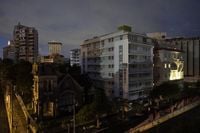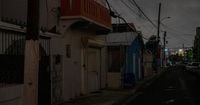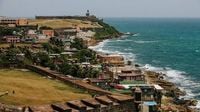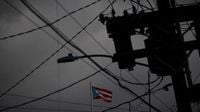On Wednesday, April 16, 2025, Puerto Rico experienced a massive island-wide blackout, leaving all 1.4 million electricity consumers without power at one point. The outage began around 12:40 p.m. local time when all of the island’s power plants unexpectedly went offline, according to Genera Puerto Rico, the private company responsible for most of the island’s electricity generation.
Hugo Sorrentini, a spokesman for Luma Energy, which oversees the transmission and distribution of power, confirmed the extent of the blackout. "The entire island is without generation," he stated. Genera PR echoed this in a social media post, noting, "We have experienced a massive blackout affecting the entire island due to the unexpected shutdown of generating plants." The cause of the outage was traced back to a failure in a transmission line between EcoEléctrica and Costa Sur, as explained by Josué Colón, Puerto Rico's energy director.
By late Wednesday afternoon, some 5,000 to 7,000 customers had their power restored, but full restoration could take up to 48 to 72 hours, according to officials. The situation has raised concerns among residents, especially given the island's history of power outages, which have been exacerbated since Hurricane Maria devastated the infrastructure in 2017.
The blackout had immediate and widespread effects. Commuters in the capital, San Juan, were forced to walk next to the rails of the rapid transit system when services halted. Major businesses, including Plaza Las Américas, the Caribbean's largest mall, shut down operations, and professional sports events were canceled. Traffic snarled as police officers were deployed to manage intersections without functioning traffic lights.
Residents without generators rushed to grocery stores for ice and other essentials. Carmen Suriel, a mother of two, expressed her desperation, saying, "I'm desperate. My generator is broken," highlighting the urgent needs of families during such outages. Alma Ramírez, 69, voiced her frustration over the frequent blackouts, stating, "They have to improve. Those who are affected are us, the poor." With more than 40% of Puerto Rico's population living below the poverty line, not everyone can afford backup power solutions.
Despite past efforts to modernize the island's energy grid, including investments in renewable sources, the reliance on petroleum-fired power plants remains high, supplying 62% of the island's energy, with natural gas at 24%, coal at 8%, and renewables at only 7%. This dependency raises concerns about the island's ability to meet energy demands, especially during peak seasons.
Puerto Rico's energy infrastructure has long been criticized for its fragility, with blackouts becoming a common occurrence. The New Year’s Eve blackout was a stark reminder of the ongoing issues, where an underground power line failure left the island in darkness for two days. Following that incident, energy officials warned that the island could face more outages during the upcoming summer months due to insufficient generating capacity.
As the situation unfolded, Puerto Rico Governor Jenniffer González-Colón, who was out of the territory, assured residents through social media that officials were working diligently to restore power. Interim Governor Verónica Ferraiuoli confirmed that the government was in contact with the White House and the U.S. Department of Energy for assistance. "They have made themselves available to help us," Ferraiuoli stated in remarks made in Spanish.
Meanwhile, the Luis Muñoz Marín International Airport reported that it was operating on generator power, although some services were limited. Passengers were advised to arrive early due to potential delays.
As the island grapples with this latest blackout, the Puerto Rico Federal Affairs Administration (PRFAA) communicated its ongoing engagement with federal authorities to expedite recovery efforts. "We are working closely with the federal government to ensure that Puerto Rico receives the necessary support and that all essential services are restored as quickly and safely as possible," PRFAA stated in an update.
Democratic U.S. Representative Ritchie Torres of New York characterized the situation as a humanitarian crisis, emphasizing that the residents of Puerto Rico have long been denied reliable electricity despite paying some of the highest utility rates in the U.S. He remarked, "Access to dependable power—a basic right most Americans take for granted—remains out of reach for millions on the island." Torres's comments reflect a growing concern among lawmakers about the reliability of Puerto Rico's electric grid.
As the island prepares for the upcoming Easter weekend, a time when many residents typically take time off work, the urgency to restore power is paramount. The blackout not only disrupts daily life but also poses significant risks to vulnerable populations, including the elderly, infants, and those dependent on electrically powered medical devices.
Looking ahead, energy officials have indicated that while some plants, like the Palo Seco plant, began coming online by 3:00 p.m. on Wednesday, the full restoration process is expected to be complex and lengthy. Gary Soto, director of the energy management and transmission operation center for Luma Energy, stated, "This process is not going to end today." With the island's infrastructure still recovering from past disasters, the need for a sustainable and reliable energy solution remains critical.







